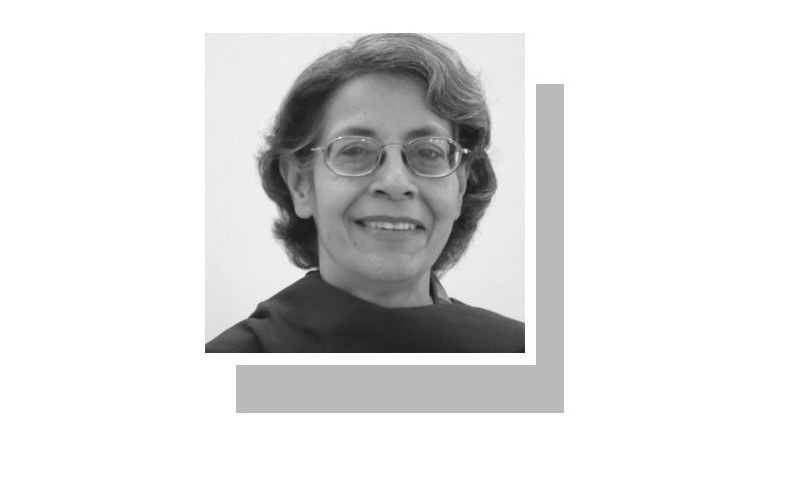ON May 13, 2020, a group of men entered a maternity hospital in Kabul, killing several mothers and babies. In India, Muslims face daily murders, rapes, humiliation and conversions. In April 2017, Mashal Khan, a young student, was lynched by a group of men within the premises of a university in Pakistan.
In 2019, 62 worshippers performing Friday prayers were killed by a bomb blast in Nangarhar. Back in 2002, a fire broke out at a girl’s school in Makkah. Fifteen young girls died and 50 injured, allegedly because they were beaten back to go inside: they had not covered their heads. In 1987, more than 400 unarmed pilgrims, mostly Iranians, were killed in Makkah during a protest. The list goes on.
One fact stands out: most of the outpouring of anger, sympathy and concern came from non-Muslim organisations, people and countries. Muslims were, by and large, silent.
Even as the world seems to have come closer, with a more formalised structure of human rights, it has regressed into increasing hatred and acts of violence against the ‘other’, whoever it might be. It took the Christians six centuries of religiously supported wars and torture against Muslims and Jews to decide that they could safely replace religion with science. They colonised, ridiculed Muslims, spread false rumours, destroyed traditions of Muslim scholarship and weakened Muslim societies through carefully orchestrated propaganda. Islamophobia has increased since 9/11 with Muslims being held in Guantanamo Bay prison and tortured. Very few Muslim governments stood up to help them.
Muslims have shunned progress and new ideas.
Muslims did more than their share of bringing themselves down, spiritually, intellectually, economically and scientifically. From being pioneers of science, logic and rational thought, their contribution to world science literature is now meagre. Forty-six Muslim countries contribute 1.17pc to science literature as compared to 1.66pc by India and 1.48pc by Spain. Where their schools were centres of learning for all, regardless of religious or ethnic background, they are now sectarian, often teaching tunnel-vision versions of their faith. By and large, Muslims have turned away from progress; destroyed their own institutions, and refused to self-analyse.
The Sharia was a path towards divine guidance, lighting up minds, providing opportunities for knowledge seekers from all over the world, opening hearts to mercy, compassion, kindness, graciousness and all that is beautiful in God’s world. The Sharia, along with human thought, was the core of ethics. Instead, it is now often trivialised, used mostly for matters regarding women and sex segregation and enforcing marital subservience of wives.
Islamic classical tradition assumed a condition of isma or inviolability of human life, based on the Quran and the Prophet’s (PBUH) sayings.
Many Muslim theorists forbade the practice of takfir (accusing someone who calls himself a Muslim of not being one and producing inferred evidence). The Quran called idolaters ‘kafir’ (those who denied the Truth in presence of and after conclusive arguments by the Prophet); the faithful now find it legitimate to declare anyone kafir, hound them, turn them out of their homes and destroy their property. The easiest way to do this is to level false allegations of blasphemy and raise such a hue and cry that even courts issue guilty verdicts.
States have begun to profess a religion, so all who believe differently are second-class citizens, with few rights. The tyranny of rulers can no longer be questioned.
One of the worst consequences of this political and moral weakening of Muslim societies is the breaking of Muslims of their covenant with God. This covenant was to establish qist (reasonable justice) which cannot be achieved unless the grievance and remedy is assessed from the perspective of the victim, and to call for maruf (good) and advocate against munkar (evil). Classical jurists of Islam equate the maruf with how a person would like to be treated. The understanding of what is maruf and munkar is resident within a person’s nature. God places the responsibility of the morals of a society squarely upon its people and declares: “...Verily never will Allah change the condition of a people until they change it themselves. ... (13:11)”.
The Quran calls upon humans to give evidence of the truth, even if it means going against one’s family or interests. In other words, Muslims should raise their voices against crimes perpetrated by Muslims, even more than they would for those committed by non-Muslims.
Today, this has been turned on its head. Non-Muslim societies provide justice far more in line with the Sharia, mete out humane treatment, provide refuge to those who have suffered under oppressive regimes at home and speak up against rights violations. As Dr Khaled Abu El Fadel says, it is as if “someone uses the superficially technical Sharia to violate Sharia”.
The writer is a freelance contributor, with an interest in religion.
Published in Dawn, July 24th, 2020











































